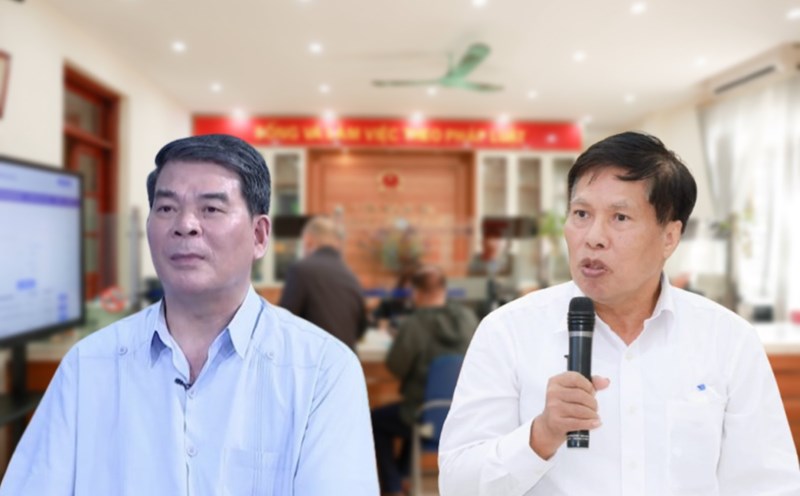New door for talented people
Information that has received much attention recently is that the Ministry of Home Affairs is drafting a Decree allowing agencies and units in the political system in our country to sign contracts with personnel working in the non-state sector such as businessmen, lawyers, scientists... to perform the duties of civil servants.
Dr. Pham Manh Hung (University of Economics - Vietnam National University, Hanoi) believes that the mechanism of contracts with a term for non-civil servants is a right and appropriate step, freeing the apparatus from traditional constraints that limit innovation. Talented people can now go straight to the leadership chair if they are capable. This is especially important in the context of many cases of "pick-ups to choose flagpole", appointing people according to the plan even though they do not have outstanding abilities, just because there are no other options.
The new mechanism creates an open competition in the public sector, where the leadership position is no longer an internal privilege but becomes a worthy destination for talented people, regardless of whether they come from the public or private sector.
However, to prevent newcomers from falling into isolation, Dr. Hung suggested that there should be soft integration mechanisms, such as a program to get acquainted with public service culture, support group work, ensure that the appointed person understands how to operate the apparatus and coordinate effectively with the existing team.
Changing salary payment methods, creating motivation from the root
To make talented people truly attractive to the public sector, a fundamental factor is that the salary payment mechanism also needs to be innovated in the direction of being associated with job positions, regardless of seniority or rank. This is also the opinion of Mr. Le Quang Trung - former Deputy Director in charge of the Department of Employment, Ministry of Labor, War Invalids and Social Affairs (now Ministry of Home Affairs). He said that paying salaries according to job positions is an inevitable trend that many countries have applied, and Vietnam should consider this a breakthrough in recruiting, using, evaluating and treating civil servants.
According to Mr. Trung, to do this, it is necessary to clearly identify each job position, with specific tasks and clear requirements. Each task needs to be explained why it needs to be done, and why it must be associated with that position, instead of spreading responsibility.
Dr. Pham Manh Hung admitted that any innovation has certain potential disruptions, the appearance of "externals" taking on leadership positions will cause a sense of fear, even disappointment in the existing civil service team - those who have spent many years promoting along the traditional path. However, if the person chosen is a real talent, the effectiveness of the work, the correct decision and the specific result will be living proof to dispel all doubts.
"If you don't believe it, you don't use it, if you do, you have to believe it" - Dr. Hung affirmed. Finally, according to experts, if the person is chosen worthy and the implementation mechanism is cleverly designed, this is an opportunity to actively reform, build a healthy competitive culture in the public sector - where the old and new are both aiming for higher service standards.
The leadership contract mechanism, combined with salary payment according to job position, will contribute to comprehensively upgrading public management thinking, towards quality, efficiency and service spirit, instead of just sticking to seniority or form.












